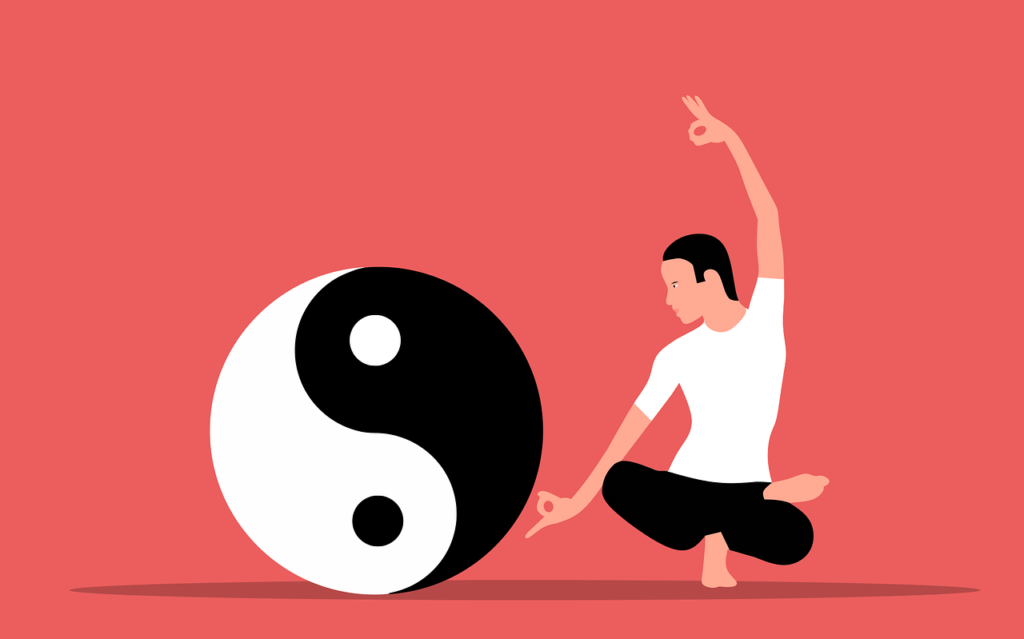Have you ever felt like you’re running on empty? Like no matter how much you push yourself, you’re just not getting anywhere? You’re not alone. In our fast-paced world, it’s easy to get caught up in the hustle and forget to take care of ourselves. But here’s the thing: You can’t pour from an empty cup. Without self-care, you’re likely to burn out before you reach your full potential.
“Self-care is not self-indulgence, it is self-preservation.”
Audre Lorde
Definition of Self-Care
Self-care is the practice of taking action to preserve or improve one’s health. It’s about making the conscious decision to prioritize your well-being in various areas of life. Think of it as a regular maintenance check for your body, mind, and soul.

The Connection Between Self-Care and Personal Development
Personal development is all about becoming the best version of yourself, achieving your goals, and reaching your full potential. It’s about setting goals, learning new skills, and pushing your boundaries. Without self-care, this process becomes incredibly challenging. By taking care of yourself, you equip yourself with the energy, focus, and resilience needed to tackle life’s challenges and achieve your dreams.
“By taking care of myself I have so much more to offer the world than I do when I am running on empty.”
Ali Washington
The Role of Self-Care in Personal Development
Enhancing Mental and Emotional Resilience
Imagine your mind as a garden. Self-care is like watering the plants and pulling out the weeds. It helps you handle stress, bounce back from setbacks, and stay emotionally balanced. Practices like mindfulness, meditation, and regular breaks can do wonders for your mental health.
Boosting Productivity and Focus
Ever tried to work when you’re exhausted or stressed out? It’s not fun, and it’s not productive. Self-care ensures you’re at your best, helping you stay focused and efficient. Even something as simple as getting enough sleep or taking regular breaks can significantly enhance your productivity.
Pro Tip: Try the Pomodoro Technique. Work for 25 minutes, then take a 5-minute break. It’s a great way to incorporate self-care into your workday.
Fostering Self-Awareness and Growth
Self-care encourages you to tune into your needs and desires. This self-awareness is crucial for personal growth. When you understand what makes you tick, you can make better decisions, set more meaningful goals, and grow in ways that truly matter to you.
“Knowing yourself is the beginning of all wisdom.”
Aristotle

Types of Self-Care
Physical Self-Care
Your body is your temple, and physical self-care is about keeping it in good shape. This includes regular exercise, a balanced diet, and sufficient sleep. Remember, a healthy body supports a healthy mind.
- Exercise: Find something you enjoy, whether it’s yoga, running, or dancing like no one’s watching.
- Nutrition: Eat foods that nourish your body. Think of food as fuel.
- Sleep: Aim for 7-9 hours a night. Your body and mind will thank you.
Emotional Self-Care
Emotional self-care involves activities that help you manage your emotions and maintain a positive outlook. This could be anything from talking to a friend to practicing gratitude. This is about acknowledging and expressing your feelings.
- Journaling: Write down your thoughts and feelings. It’s a great way to process emotions.
- Therapy: Talking to a professional can provide valuable insights and support.
- Music and Art: Express yourself through creative outlets.
Mental Self-Care
Mental self-care focuses on keeping your mind sharp and engaged. This can include activities like reading, solving puzzles, or learning new skills. It’s about nurturing your intellect and keeping your brain healthy.
- Reading: Dive into a good book. It’s like a workout for your brain.
- Puzzles and Games: Challenge your mind with puzzles, crosswords, or strategy games.
- Learning: Take a class or learn a new skill. YouTube is a treasure trove of tutorials.
Social Self-Care
We are social creatures, and maintaining healthy relationships is a crucial part of self-care. This involves spending time with loved ones, joining social groups, or simply enjoying a good conversation.
- Quality Time: Spend time with loved ones. It’s about quality, not quantity.
- Boundaries: Set healthy boundaries to protect your energy.
- Support Networks: Build a network of supportive friends and family.
Spiritual Self-Care
Spiritual self-care doesn’t necessarily mean religious practices (though it can for some people). It’s about connecting with something bigger than yourself. This could be through meditation, nature walks, or practicing mindfulness.
- Meditation and Prayer: Find a practice that resonates with you.
- Nature: Spend time in nature. It’s incredibly grounding.
- Reflection: Take time to reflect on your values and beliefs.

Key Benefits of Self-Care
Improved Physical Health
Regular self-care practices like exercise and proper nutrition can lead to better physical health. You’ll have more energy, fewer illnesses, and a stronger body. Consider this: when you nourish your body with healthy foods and keep it active, you’re investing in your long-term health. Regular exercise can reduce the risk of chronic diseases such as heart disease and diabetes. And it’s not just about preventing illness; it’s about feeling vibrant and full of energy every day.
“Take care of your body. It’s the only place you have to live.”
Jim Rohn
Enhanced Mental and Emotional Well-Being
Self-care helps manage stress, reduce anxiety, and boost your mood. It promotes mental clarity and emotional stability, making you feel more balanced and happy. Imagine waking up each day with a clear mind, ready to tackle whatever comes your way. Practices like mindfulness and meditation can significantly reduce stress levels, while activities like journaling can help you process your emotions. It’s about creating a mental space where you feel safe and nurtured.
Increased Self-Esteem and Self-Worth
When you take time for yourself, you’re telling yourself that you matter. This boosts your self-esteem and helps you develop a stronger sense of self-worth. Think of it this way: each act of self-care is a vote of confidence in yourself. Over time, these small acts add up, creating a robust sense of self-love and appreciation. You begin to see yourself not just as a doer or achiever but as someone deserving of care and compassion.
Prevention of Burnout
Burnout is a state of emotional, physical, and mental exhaustion caused by excessive and prolonged stress. Regular self-care can prevent burnout by helping you manage stress and maintain a healthy work-life balance. Burnout doesn’t just happen overnight; it’s a gradual process where stress accumulates over time. By prioritizing self-care, you create a buffer against this accumulation. You learn to recognize the signs of stress early and take proactive steps to address them before they spiral out of control.

Practical Self-Care Strategies
Developing a Self-Care Routine
Creating a self-care routine involves identifying activities that recharge you and making them a regular part of your life. This could be as simple as a morning walk or as elaborate as a weekly spa day. The key is consistency. A routine helps embed self-care into your daily life, making it a natural part of your rhythm rather than an afterthought. Start with small, manageable steps, and gradually build up your routine.
Example: Start your day with a few minutes of mindfulness meditation. It sets a positive tone for the day.
Overcoming Common Obstacles to Self-Care
Many people struggle with self-care because they feel they don’t have time or they’re not worth the effort. It’s important to challenge these beliefs and recognize that self-care is essential for your overall well-being. Start small and gradually build your self-care habits. Remember, it’s not about doing everything perfectly; it’s about making a commitment to prioritize yourself, even in small ways.
Pro Tip: Schedule self-care like you would any other important appointment. Treat it as non-negotiable.
Integrating Self-Care into Daily Life
Self-care doesn’t have to be time-consuming. You can integrate it into your daily life by making small changes. Integrate it into your daily life. Take a few deep breaths while waiting in line, stretch during TV commercials, or listen to a podcast while commuting.
You could take a few minutes each day to meditate, journal, or simply sit quietly and breathe. Look for pockets of time throughout your day where you can insert moments of care. It could be a 5-minute stretch break during work or a quiet moment with your morning coffee. The goal is to make self-care a seamless part of your life.

Self-Care Activities for Personal Development
| Mindfulness |
| Meditation |
| Exercise |
| Creative Activities |
| Hobbies |
| Journaling |
| Reflection |
| Learning New Things |
| Skill Development |
Creating a Self-Care Plan
Identifying Your Needs and Priorities
The first step in creating a self-care plan is to identify your needs and priorities. What activities make you feel good? What areas of your life need more attention? Maybe you need physical rest, emotional support, mental stimulation, or spiritual connection. Take some time to reflect on what you need most right now. Once you know what you need, you can prioritize your self-care activities accordingly.
Setting Realistic Goals
Set realistic and achievable goals for your self-care plan. Start with small, manageable steps and gradually increase the complexity and frequency of your self-care activities. For example, if you want to start exercising more, set a goal to walk for 10 minutes a day and gradually increase the time as you build the habit.
Monitoring and Adjusting Your Plan
Regularly monitor your self-care plan and make adjustments as needed. Life changes, and so do your needs. Be flexible and open to trying new self-care practices. Check-in with yourself regularly to see how your plan is working and make changes as necessary. The key is to stay committed to the process, even if it requires tweaking along the way.
Pro Tip: Keep a self-care journal to track your activities and reflect on what’s working and what’s not.

Conclusion
Self-care is not a luxury; it’s a necessity. It’s the foundation upon which personal development is built. By prioritizing self-care, you’re investing in your overall well-being and setting yourself up for success. So, take that bubble bath, go for that run, or spend time with loved ones. You deserve it.
Encouragement to Prioritize Self-Care in Personal Development Journey
Embrace self-care as a vital part of your personal development. Start small, be consistent, and watch as your life transforms. Enjoy the process and celebrate your progress along the way.
Incorporate self-care into your daily routine, and you’ll soon see the positive impact it has on every aspect of your life. From improved physical health to enhanced emotional well-being, the benefits of self-care are immense. So take that first step today, and prioritize your self-care in your personal development journey.
Remember, self-care is a journey, not a destination. It’s about finding what works for you and making it a regular part of your life. So, go ahead and take that first step. Your future self will thank you.

Leave a Reply